Soya beans belong to the legume family of plants and originate from Eastern Asia. They are used as an important source of protein in the Orient for five thousand years. Soya was introduced in the Western world during the 20th century.
Soya bean plants grow in different soils and a wide range of climates ranging from tropical in Brazil, to frigid in Hokkaido in northern Japan. When soya beans are ripe, their fruits are hard and dry. While most varieties of soya beans are yellow, there are some varieties that are black, brown or green.
Composition of soya beans
Soya is a plant product that is suitable for all those who want to eat healthy. It is high in fiber, lecithin, omega-3 fatty acids, phytoestrogens and isoflavones. The composition of soya beans includes vitamins A, C, E, H, B6, B9, B12 and many minerals. Soya proteins are so many that soya is rightly called meat for vegetarians.
100 grams of soya beans contains 446 calories, 19 g fat, 36.5 g protein and 30 g carbohydrates.
Selection and storage of soya beans
Fresh soya beans need to be stored in the refrigerator and used within two days. Frozen soya beans can be stored for several months. Dried soya beans, in turn, can be stored in an airtight container for - a long period of time.

Culinary uses of soya beans
The use of soya is most often associated with its transformation into other foods such as tempeh, tofu, miso, soya milk or other ingredients. However, boiled soya beans can also be used as an ingredient in soups, sauces and stews. Most known soya products are:
Soya sauce - a common spice that is perfect in many vegetable and meat dishes.
Soya bean oil - the advantage of this type of oil, among others, is that it has no cholesterol. It has a neutral taste, and is very rich in essential fatty acids. Most often, it’s used to prepare various marinades to salads, but the fact that it withstands temperatures higher than 180 degrees makes it suitable for low temperature grilling and frying. It is also used for steaming.
Tofu - a white, almost tasteless soya product that rightly bears the title "king of soya products." Is very widely used in cooking - grilled, grated into vegetables or in combination with other vegetables. Soya cheese can be marinated with soya sauce orolive oil with spices, resulting in yielding a strong cheese flavor and taste. Note that tofu has the ability to absorb foreign flavors.
Soya beans - fried or roasted soya beans is a very popular snack. If you want to choose healthy foods without salt, try roasted soya beans.
Soy Milk is also gaining popularity, especially among vegans. It is a very good choice for people who suffer from lactose intolerance.
Soy Flour can be used in all the dishes that you put wheat in, but it is necessary to sift it from impurities.
Benefits of Soybeans
Soybeans have very many benefits to our health that come in the form of quality soya protein and isoflavones form of genistene and daidzene. The main health benefits of soya can be summarized in the following categories:
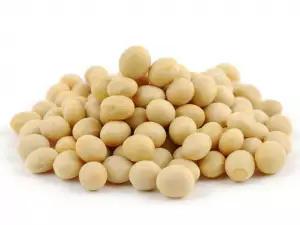
- Soya improves bone strength. Soya products such as soya milk, do not contain a lot of calcium but the soya isoflavones may help reduce the risk of osteoporosis. Several studies suggest that soy isoflavones may be a factor that helps prevent bone loss.
- Soya reduces the risk of heart disease. In countries where soya products are eaten regularly, the risk of cardiovascular disease is lower. Studies show that soya can help prevent heart disease by reducing total cholesterol, lowers density of lipoprotein cholesterol and prevents the formation of plaque in the arteries which can lead to stroke or heart attack. These health benefits are also mainly attributes to the soya isoflavones. Genistie can lead to an increase in the flexibility of blood vessels.
- Soya helps to prevent certain cancers. Several studies have shown that regular intake of soya foods may help prevent hormone-related cancers such as breast cancer, prostate cancer and colon cancer.
Soya products such as tofu, tempeh and soya milk are very rich in protein. This protein is of very high quality because it contains all the essential amino acids. Soya is a good source of lecithin and vitamin D. These natural antioxidants prevent oxidation of LDL cholesterol. Soya is also rich in magnesium, which plays an important role in bone health, heart and arteries.
Dangers of soya beans
It is not excluded that some people show intolerance to soya beans, but it is still a matter of what quantity causes allergy. On the other hand, soya is one of the most threatened by GMO contamination foods.
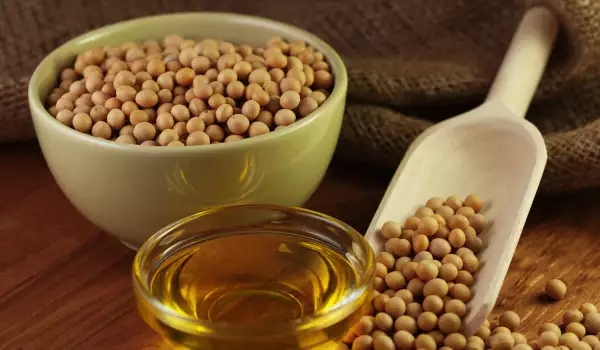
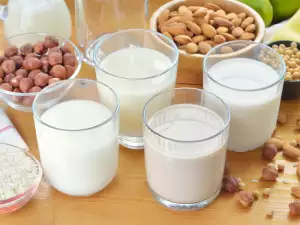
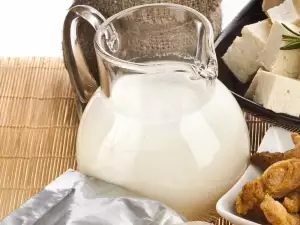
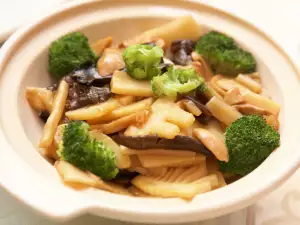

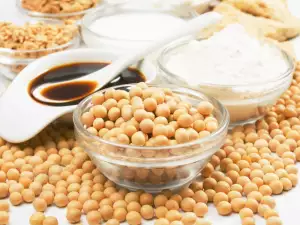

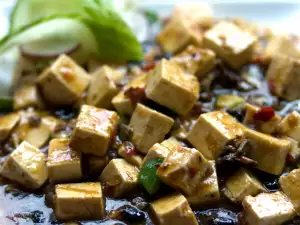

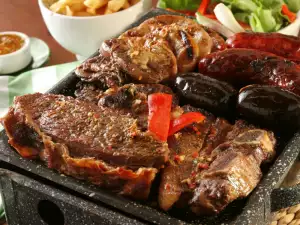




Comments